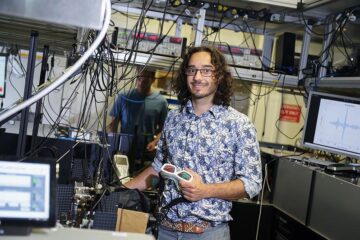HypoPlant – Production of hypo-allergenic glycoproteins in plants

Glycoproteins (GPs) are of prime interest in the medical sciences. However, production of GPs by standard methods is still complex and expensive.
Plants have been suggested as potential cost-effective and safe GP-production systems; yet, major differences in the final steps of biosynthetic pathways in mammals and plants lead to different glycosylation patterns, provoking an immune response when treating humans with GPs produced in plants. On the other hand, glycosylation is a pre-requisite for proper protein folding, which in case of diagnostic and therapeutic glycoproteins should ideally not include immu-nogenic residues. Challenge State-of-the-art approaches utilize glycosylation mutants or overexpression of the desired protein product (intending to override the cellular glycosylation machinery), although such mutants either show impaired yield or loss of vitality in com-parison to wild-type plants. Also, glycan components rarely terminate in mannose residues, which is essential for uptake via mannose receptors in patients with lysosomal storage diseases. This invention provides a new tool to generate GPs with hypo-allergenic properties in a cost-effective way: In con-trast to current methods, the new technique enables effec-tive production of heterologous GPs by vital plants without impair¬¬ments. The technology is based on genetic modifica-tion of the plant glycosylation pathway. The technology is applicable to solanaceous and other plant species of agronomic interest. Suppression of a specific enzyme results in a general reduction of cross-reactive carbohydrate determinants (CCD) in all tissues, leading to GPs that are better taken up and tolerated by humans.
Weitere Informationen: PDF
PROvendis GmbH
Tel.: +49 (0)208/94105 10
Ansprechpartner
Dipl.-Ing. Alfred Schillert
Media Contact
Alle Nachrichten aus der Kategorie: Technologieangebote
Neueste Beiträge

Neue universelle lichtbasierte Technik zur Kontrolle der Talpolarisation
Ein internationales Forscherteam berichtet in Nature über eine neue Methode, mit der zum ersten Mal die Talpolarisation in zentrosymmetrischen Bulk-Materialien auf eine nicht materialspezifische Weise erreicht wird. Diese „universelle Technik“…

Tumorzellen hebeln das Immunsystem früh aus
Neu entdeckter Mechanismus könnte Krebs-Immuntherapien deutlich verbessern. Tumore verhindern aktiv, dass sich Immunantworten durch sogenannte zytotoxische T-Zellen bilden, die den Krebs bekämpfen könnten. Wie das genau geschieht, beschreiben jetzt erstmals…

Immunzellen in den Startlöchern: „Allzeit bereit“ ist harte Arbeit
Wenn Krankheitserreger in den Körper eindringen, muss das Immunsystem sofort reagieren und eine Infektion verhindern oder eindämmen. Doch wie halten sich unsere Abwehrzellen bereit, wenn kein Angreifer in Sicht ist?…

















